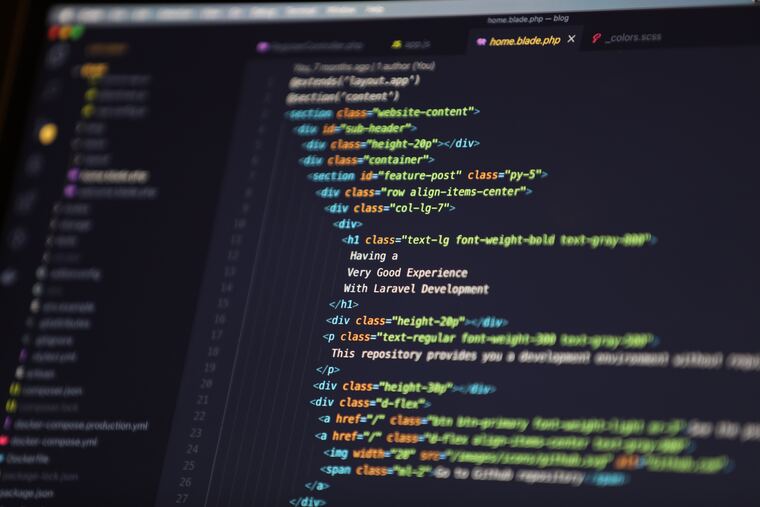
Navigating the intricate world of e-commerce forms can be a daunting task for both developers and users alike. From inputting payment details to selecting shipping options, ensuring that data is accurately validated is crucial for a seamless shopping experience. In this blog post, we’ll delve into the realm of Laravel’s validation capabilities and explore how you can tailor them to suit the specific needs of e-commerce platforms. Let’s embark on a journey to streamline form validations and enhance user interaction in your online store!
Understanding the Importance of Validation in E-commerce
Validation in e-commerce goes beyond just ensuring that a user inputs their information correctly. It serves as the gatekeeper to safeguard your platform from potential security risks and data vulnerabilities. By validating form fields such as email addresses, passwords, and payment details, you can prevent fraudulent activities and protect sensitive customer data.
Accurate validation enhances the overall user experience by guiding customers through the checkout process smoothly. Error messages provide clear feedback on what went wrong and how users can rectify it, reducing frustration and increasing trust in your online store. Seamless validation also helps maintain data integrity within your database, ensuring that only valid information is stored for future transactions.
In the fast-paced world of e-commerce where every second counts, efficient validation mechanisms are essential to minimize errors during checkout. A well-structured validation system not only boosts usability but also instills confidence in users to complete their purchases securely on your platform.
Customizing Validation Rules for E-commerce Forms
When it comes to e-commerce forms, customizing validation rules is key. You want to ensure that your customers are providing accurate and complete information without any errors. With Laravel, you have the flexibility to tailor these rules according to your specific needs.
Whether it’s validating email addresses, phone numbers, or credit card details, Laravel allows you to set up precise rules that match your business requirements. You can create custom validation messages to provide clear feedback to users in case of any mistakes.
By defining unique validation rules for each form field, you can enhance the overall user experience on your e-commerce platform. This not only helps in preventing incorrect data submissions but also improves the reliability and security of your online transactions.
Incorporating customized validation rules into your e-commerce forms ensures a seamless and error-free shopping experience for your customers. By leveraging Laravel’s robust validation capabilities, you can streamline the process and boost confidence in every transaction made on your website.
Handling Complex Form Validations with Laravel
Handling complex form validations with Laravel can be a game-changer when it comes to ensuring data integrity and user experience on e-commerce platforms. With Laravel’s powerful validation capabilities, developers can create custom rules that cater specifically to the unique requirements of online shopping forms.
From verifying email formats to validating credit card numbers, Laravel offers a wide range of built-in validation options. But what sets it apart is the ability to define complex rules for intricate scenarios such as checking inventory availability before processing an order or validating coupon codes against specific conditions.
By leveraging Laravel’s intuitive syntax and flexible validation methods, developers can streamline the process of error handling and provide users with real-time feedback on their form submissions. This not only enhances usability but also contributes significantly to preventing data inconsistencies and potential security vulnerabilities.
Incorporating advanced validation techniques in Laravel empowers e-commerce businesses to maintain high standards of accuracy and reliability in their data inputs. By proactively addressing potential issues through tailored validation logic, developers can ensure seamless transactions and improved overall customer satisfaction within online shopping experiences.
Implementing Error Messages and Feedback for Users
When it comes to e-commerce forms, providing clear and concise error messages is crucial. Users need to know what went wrong when submitting a form.
Implementing dynamic error messages in Laravel can greatly enhance the user experience. By customizing validation rules and feedback, you can guide users towards filling out forms correctly.
Displaying specific error messages next to each input field helps users pinpoint where they made a mistake. This level of detail saves time and frustration for both users and developers.
Laravel’s built-in features allow for easy integration of error messages within your application. With proper implementation, you can ensure that users receive informative feedback that improves their interaction with your e-commerce platform.
By focusing on error message design and clarity, you create a seamless flow for users navigating through your forms. Effective feedback leads to higher conversion rates and happier customers interacting with your online store.
Conclusion
In the fast-paced world of e-commerce, ensuring data accuracy and security is paramount. Laravel’s validation feature offers a robust solution for validating form inputs effectively. By customizing validation rules to suit the specific needs of e-commerce forms, developers can streamline error handling and enhance user experience.
Handling complex validations with Laravel allows for precise control over input requirements, making it easier to enforce data integrity. Implementing clear error messages and feedback mechanisms ensures that users are guided through the form submission process smoothly.
By tailoring Laravel’s validation capabilities to fit the unique demands of e-commerce forms, developers can create a seamless and secure online shopping experience for customers. Embracing best practices in form validation not only enhances usability but also safeguards sensitive information from potential threats.
So remember, when it comes to building e-commerce platforms with Laravel, customization is key. Take advantage of Laravel’s powerful validation features to optimize your forms and elevate your online store’s performance.